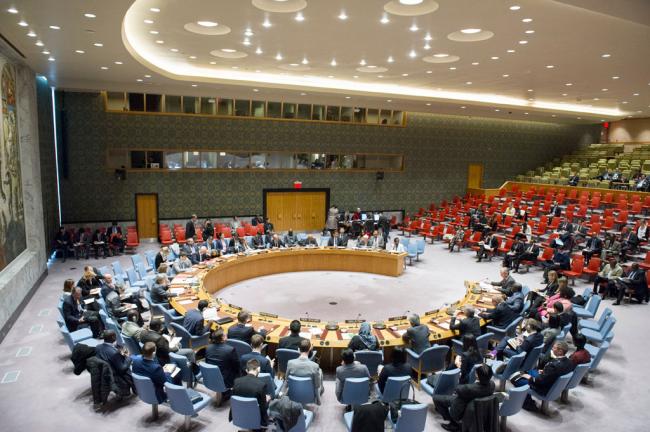
Liberia ‘stable’ but needs continued attention, Security Council told
“However, sustaining the gains made will require continued and greater investment in the security services, as well as commensurate improvements in the justice and corrections sectors,” Hervé Ladsous, UN Under-Secretary-General for Peacekeeping Operations, told the 15-member Council’s briefing on the work of the UN Mission in Liberia (UNMIL).
Ladsous further reported that the political environment in the west African country remained dominated by preparations for presidential and legislative elections, scheduled for October 2017, and that the next President’s inauguration in January 2018 would mark a historic milestone for Liberia’s democracy.
“What happens next year, therefore, will be critical: it will demonstrate whether the foundations of peace built since the conflict ended 13 years ago are strong enough to be sustained,” he said, underlining the need to ensure that measures are put in place now to deliver a free, fair, transparent and credible elections.
Reporting that UN Secretary-General Ban Ki-moon had outlined three possible options for the UNMIL’s future: withdrawing and establishing a successor mission; maintaining the status quo; or continuing its drawdown.
Emphasizing that Liberia should remain on the Council’s agenda through the installation of the next administration, he said it was essential to retain some capacity to respond should stability deteriorate.
In its last resolution on the situation in the country, in September this year, the Security Council had extended the mandate of the UNMIL until 31 December.
Also speaking on Friday, Per Thöresson of Sweden, on behalf of the Vice-Chair of the UN Peacebuilding Commission, said that the root causes of the country’s conflict remained unresolved and stressed the need for continued implementation of the national reconciliation roadmap.
“Strong political leadership is required to fully and comprehensively address reconciliation in Liberia,” he said, adding: “Building social cohesion requires addressing historical inequalities, unequal access to resources and power.”
Noting the economic challenges brought by the Ebola outbreak and that 63 per cent of the country’s children were out of school, as well as residual peacebuilding tasks in 2017 which required sustained international support, he underscored that these and other factors should be kept in mind when considering the future of the UN presence in Liberia, especially given the upcoming electoral period.
UN Photo/Rick Bajornas
Source: www.justearthnews.com
Support Our Journalism
We cannot do without you.. your contribution supports unbiased journalism
IBNS is not driven by any ism- not wokeism, not racism, not skewed secularism, not hyper right-wing or left liberal ideals, nor by any hardline religious beliefs or hyper nationalism. We want to serve you good old objective news, as they are. We do not judge or preach. We let people decide for themselves. We only try to present factual and well-sourced news.







